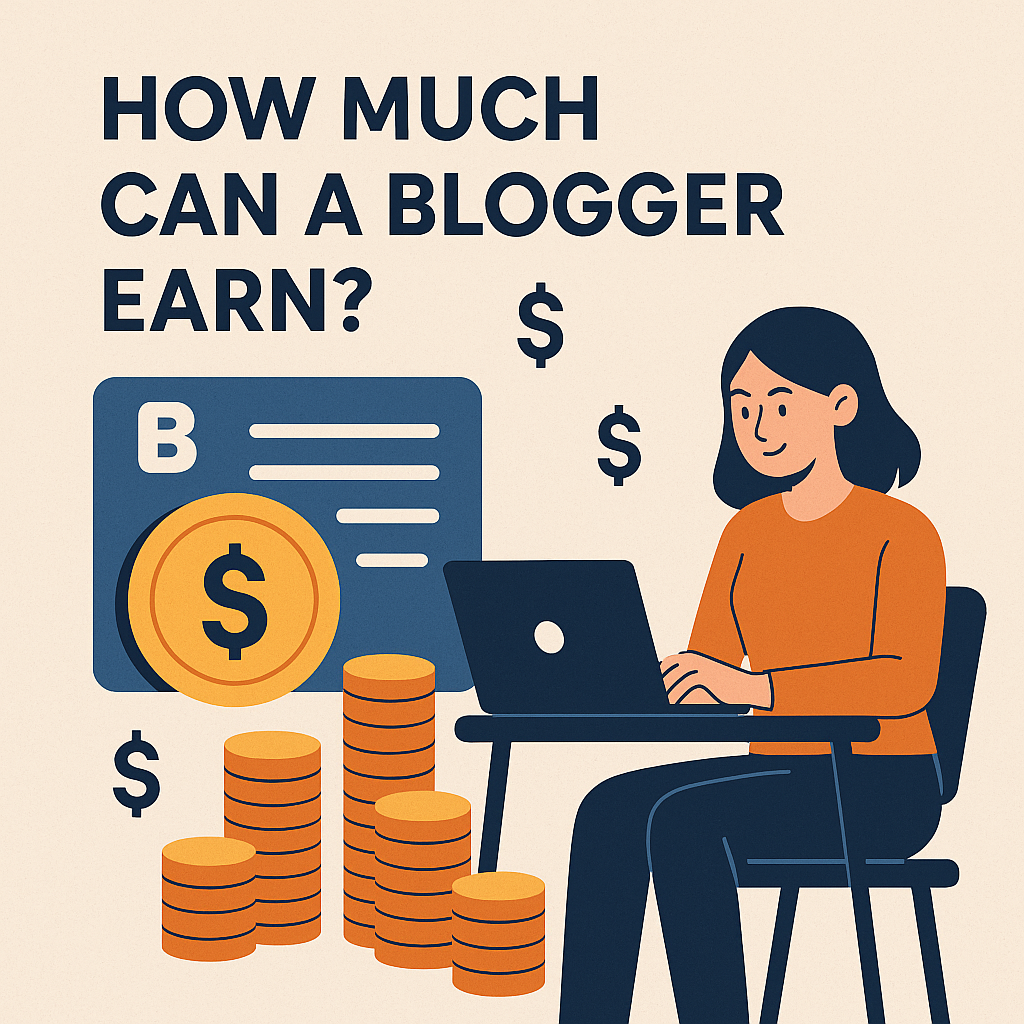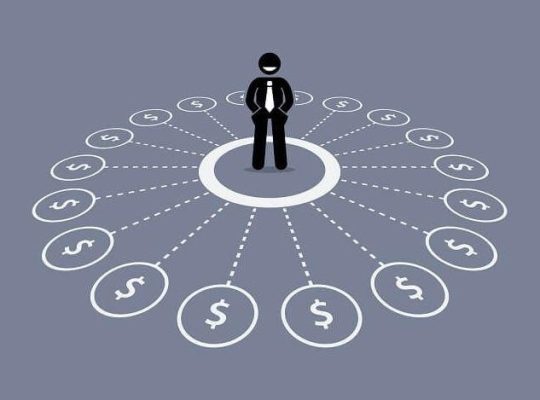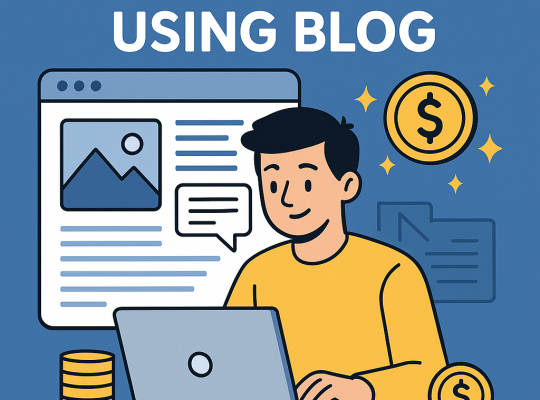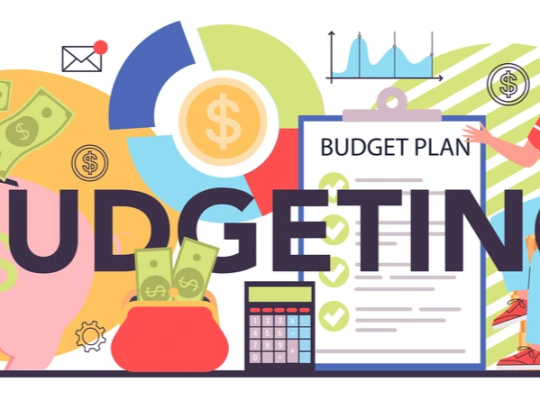As we approach 2025, the blogging landscape is evolving at an unprecedented pace, sparking curiosity about the earning potential for bloggers. Gone are the days of viewing blogging merely as a hobby; it has transformed into a viable career path for many creative minds. But how much can a blogger really earn in the coming years? In this article, we’ll explore the factors influencing blogger income, including emerging trends, monetization strategies, and shifts in audience engagement. Whether you’re a seasoned blogger or just starting out, understanding the potential earnings in this dynamic marketplace can help you navigate your path to success. Join us as we dissect the economics of blogging and uncover what the future holds for those willing to share their voice online. The insights you gain could be the turning point in your blogging journey!
The Evolution of Blogging: A Brief History
Blogging has come a long way since its inception in the late 1990s when it began as a digital diary for individuals to share their thoughts and experiences. The term “weblog” was first coined by Jorn Barger in 1997, and by the early 2000s, platforms like Blogger and WordPress made it easier for anyone to start their own blog. These platforms democratized content creation, allowing people from all walks of life to publish their ideas and stories online. Initially, blogs were simple, text-based entries, but as technology advanced, so did the content and complexity of blogs.
The mid-2000s saw a significant shift as blogs started to become more professional and niche-focused. This period was marked by the rise of influential bloggers who garnered large followings and began to monetize their content through advertisements and sponsored posts. The concept of blogging as a viable career was born, with individuals like Heather Armstrong of Dooce and Perez Hilton becoming household names. Blogging evolved from a casual hobby into a legitimate profession, with bloggers earning substantial incomes and even attracting book deals and media appearances.
As we transitioned into the 2010s, social media platforms like Facebook, Twitter, and Instagram began to play a crucial role in the blogging ecosystem. Bloggers leveraged these platforms to expand their reach and engage with their audiences in new and interactive ways. The integration of multimedia content, such as videos and podcasts, further enriched the blogging experience. Today, blogging is a multi-faceted industry with countless niches and diverse revenue streams, setting the stage for what promises to be an even more dynamic future.
Current Blogging Income Statistics
To understand the earning potential for bloggers in 2025, it’s essential to examine the current income landscape. According to recent surveys, the average full-time blogger in the United States earns around $32,800 per year. However, this figure varies widely depending on factors such as niche, audience size, and monetization strategies. Top-tier bloggers, especially those in lucrative niches like finance, health, and lifestyle, can earn upwards of $100,000 annually, with some even reaching seven-figure incomes.
The income disparity among bloggers can be attributed to several factors, including the blogger’s level of expertise, the quality of content, and the effectiveness of their monetization tactics. For instance, bloggers who have mastered search engine optimization (SEO) and have a strong social media presence often attract more traffic and, consequently, more revenue. Additionally, those who diversify their income streams through affiliate marketing, digital products, and brand partnerships tend to see higher earnings.
It’s also worth noting that part-time bloggers, who make up a significant portion of the blogging community, typically earn less. On average, part-time bloggers earn about $9,497 annually. While this may seem modest, many part-time bloggers view their blog as a supplementary income source rather than a primary one. The flexibility of blogging allows individuals to pursue it alongside other careers or responsibilities, making it an attractive option for those looking to earn extra income.
Factors Influencing Blogger Earnings in 2025
As we look ahead to 2025, several key factors will influence blogger earnings. One of the most significant is the ever-evolving digital landscape. Technological advancements, such as artificial intelligence and machine learning, will continue to shape the way content is created, distributed, and consumed. Bloggers who stay ahead of these trends and adapt their strategies accordingly are likely to see increased earnings. For example, leveraging AI tools for content creation and analytics can help bloggers optimize their workflows and better understand their audience.
Another critical factor is the growing importance of authenticity and trust. In an age where consumers are increasingly skeptical of traditional advertising, bloggers who build genuine connections with their audience will have a competitive edge. This means prioritizing transparency, engaging with followers, and providing valuable, high-quality content. Authenticity not only fosters loyalty but also opens up opportunities for lucrative brand partnerships and sponsored content.
Economic conditions and market demand will also play a role in shaping blogger earnings. As the global economy fluctuates, so too will the advertising budgets of companies and the spending power of consumers. Bloggers who can pivot and adapt to changing economic conditions, such as by offering affordable digital products or focusing on cost-effective marketing strategies, will be better positioned to maintain and grow their income.
Monetization Strategies for Bloggers
Monetization is the cornerstone of a blogger’s earning potential, and there are several strategies that bloggers can employ to generate revenue. One of the most common methods is through display advertising, where bloggers earn money by placing ads on their site. This can be done through ad networks like Google AdSense or directly with brands. While display advertising can provide a steady income stream, it’s often more lucrative for bloggers with high traffic volumes.
Affiliate marketing is another popular monetization strategy. By promoting products or services and earning a commission on any resulting sales, bloggers can generate income without the need to create their own products. Successful affiliate marketing requires a strategic approach, including selecting relevant products, crafting compelling content, and leveraging SEO to drive traffic. Bloggers who excel in affiliate marketing often earn substantial commissions, particularly in niches like technology, fashion, and wellness.
Creating and selling digital products, such as eBooks, online courses, and membership sites, is another effective way to monetize a blog. This strategy allows bloggers to leverage their expertise and provide value to their audience while generating passive income. Digital products often have higher profit margins compared to physical products, making them an attractive option for bloggers looking to maximize their earnings. Additionally, offering exclusive content or services through a subscription model can provide recurring revenue and foster a loyal community.
The Role of Niche Selection in Blogging Income
Choosing the right niche is a critical determinant of a blogger’s earning potential. Some niches are inherently more lucrative due to higher demand, greater advertising budgets, and more opportunities for monetization. For instance, finance, technology, and health are among the highest-earning niches because they attract a broad audience and are often associated with high-value products and services. Bloggers in these niches can capitalize on affiliate marketing, sponsored content, and premium digital products to boost their income.
However, it’s not just about choosing a popular niche; it’s also about finding a niche that aligns with the blogger’s interests and expertise. Passion and knowledge in a particular area can lead to more engaging and valuable content, which in turn attracts a loyal audience. A dedicated following is more likely to trust the blogger’s recommendations and invest in their products or services. Therefore, bloggers who combine their passion with a strategically chosen niche are better positioned to succeed.
Micro-niches, or highly specialized sub-niches, can also be highly profitable. While they may attract a smaller audience, the followers are often more engaged and willing to spend money on niche-specific products and services. For example, a blog focused on sustainable fashion or vegan cooking can attract a dedicated readership that values the specialized content. By targeting a specific audience and addressing their unique needs, bloggers in micro-niches can build a strong community and monetize effectively.
Understanding Audience Engagement and Its Impact on Revenue
Audience engagement is a key factor in a blogger’s ability to generate income. Engaged readers are more likely to return to the blog, share content, and make purchases based on the blogger’s recommendations. High levels of engagement can lead to increased traffic, higher ad revenue, and more opportunities for sponsored content. Therefore, fostering a strong connection with the audience is essential for long-term success.
One way to boost audience engagement is through interactive content. Quizzes, polls, and live Q&A sessions can encourage readers to participate and interact with the blog. These types of content not only make the blog more dynamic but also provide valuable insights into the audience’s preferences and interests. By understanding what resonates with their readers, bloggers can tailor their content to better meet their audience’s needs.
Consistency and transparency are also crucial for building engagement. Regularly publishing high-quality content and being open about the blogger’s experiences and opinions can establish trust and credibility. Engaging with readers through comments, social media, and email newsletters can further strengthen the relationship. When readers feel valued and connected, they are more likely to support the blogger through purchases, subscriptions, and shares, ultimately boosting the blogger’s income.
The Importance of SEO for Blogging Success
Search engine optimization (SEO) is a fundamental aspect of blogging that directly impacts a blogger’s visibility and traffic. Effective SEO strategies can help a blog rank higher in search engine results, which in turn drives organic traffic to the site. Given that higher traffic often leads to increased revenue, mastering SEO is essential for any blogger looking to maximize their earnings.
Keyword research is a critical component of SEO. By identifying and targeting relevant keywords, bloggers can create content that aligns with what people are searching for. This involves understanding the audience’s search intent and incorporating keywords naturally into the content. Tools like Google Keyword Planner and Ahrefs can help bloggers discover high-traffic keywords and optimize their posts accordingly.
On-page SEO, which includes elements like meta tags, headers, and internal linking, is also vital for improving search engine rankings. Optimizing these elements ensures that search engines can effectively crawl and index the blog, making it more discoverable. Additionally, creating high-quality, informative content that addresses the audience’s needs can attract backlinks from other websites, further boosting the blog’s authority and search engine rankings.
Predictions for Blogging Trends in 2025
As we approach 2025, several trends are poised to shape the future of blogging. One significant trend is the increasing use of artificial intelligence and automation in content creation and marketing. AI-powered tools can assist with tasks such as keyword research, content generation, and analytics, allowing bloggers to optimize their workflows and enhance their content. As these technologies become more accessible, bloggers who leverage AI will have a competitive advantage.
Another emerging trend is the rise of video and multimedia content. With platforms like YouTube and TikTok gaining popularity, incorporating video content into blogs can enhance audience engagement and reach. Bloggers can use videos to complement their written content, create tutorials, or share behind-the-scenes glimpses. The integration of multimedia elements can make blogs more interactive and appealing to a broader audience.
The shift towards personalized and niche content is also expected to continue. As the internet becomes more saturated with generic content, readers will increasingly seek out personalized and specialized information. Bloggers who cater to specific interests and provide tailored content will attract dedicated followers. This trend underscores the importance of understanding the audience and delivering content that meets their unique needs and preferences.
Real-Life Case Studies: Successful Bloggers and Their Earnings
Examining real-life case studies of successful bloggers can provide valuable insights into the potential earnings and strategies that lead to success. One notable example is Pat Flynn of Smart Passive Income, who has built a multi-million-dollar business through blogging, podcasting, and online courses. Pat’s success can be attributed to his transparency, valuable content, and diverse income streams, including affiliate marketing, digital products, and sponsorships.
Another successful blogger is Michelle Schroeder-Gardner of Making Sense of Cents. Michelle started her blog to share her journey of paying off student loans and eventually turned it into a full-time business. She earns over $100,000 per month through affiliate marketing, sponsored posts, and her affiliate marketing course. Michelle’s focus on providing actionable financial advice and her strategic approach to affiliate marketing have been key to her success.
In the travel niche, Nomadic Matt (Matt Kepnes) has built a thriving blog that generates substantial income through travel guides, eBooks, and affiliate partnerships. Matt’s success stems from his in-depth travel content, SEO expertise, and ability to foster a strong community of travel enthusiasts. By consistently delivering valuable and engaging content, Matt has established himself as a trusted authority in the travel blogging space.
Conclusion: The Future of Blogging as a Career
As we look towards 2025, the future of blogging as a career appears bright and full of opportunities. The ever-evolving digital landscape, coupled with advancements in technology, will continue to shape the blogging industry. Bloggers who stay adaptable, embrace new trends, and prioritize audience engagement will be well-positioned to thrive. The potential for substantial earnings exists, but it requires dedication, strategic planning, and a commitment to delivering high-quality content.
The insights gained from understanding the factors influencing blogger income, such as niche selection, SEO, and monetization strategies, can serve as a roadmap for aspiring and seasoned bloggers alike. By staying informed and continuously refining their approach, bloggers can navigate the dynamic marketplace and achieve their financial and creative goals. The journey of blogging is one of growth, learning, and adaptation, and those who are willing to invest in their craft can reap the rewards.
In conclusion, the question of how much a blogger can earn in 2025 is multifaceted and depends on various factors. However, with the right strategies and a passion for content creation, blogging can be a highly rewarding and lucrative career. Whether you’re just starting out or looking to take your blog to the next level, the future holds immense potential for those who dare to share their voice with the world.






